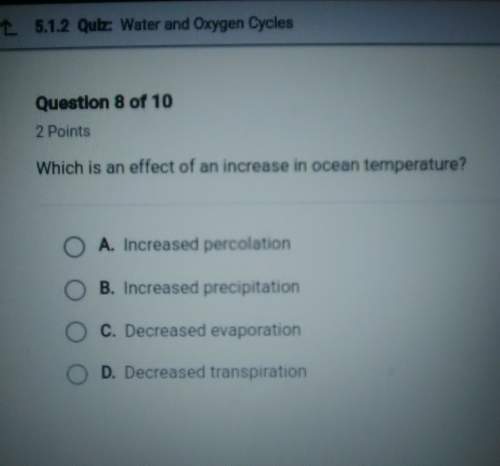Can rocks melt from heat?
A. Yes
B. No...

Biology, 23.02.2021 01:00 edwardordonez66
Can rocks melt from heat?
A. Yes
B. No

Answers: 2


Other questions on the subject: Biology

Biology, 21.06.2019 20:00, jjxt126
Read the following scenario to answer the following question. over the past 60 years, many amphibian species have experienced significant population declines, and some species have become extinct. scientists suspected that local human activities such as the destruction of wetlands, regional pollution, and deforestation were the main reasons for these losses. however, research over the past 20 years reveals significant amphibian population declines in protected areas of the world, such as nature preserves and parks. these global declines suggest widespread problems including increased ultraviolet radiation, acid rain, and disease. in switzerland, for example, 14 of the 20 native amphibian species are threatened with extinction. when most populations of a wide-ranging amphibian species are lost and the few remaining populations are widely separated, we expect to see that a. the founder effect becomes increasingly important b. microevolution no longer occurs c. gene flow between populations is reduced d. artificial selection becomes a greater factor in microevolution
Answers: 2

Biology, 21.06.2019 20:20, abigailb4424
19. scientists use meteorites that hit earth to provide evidence of the composition of earth's interior because they hypothesize that
Answers: 1

Biology, 21.06.2019 23:00, tommyaberman
Use the drop down menus to match each example to the fossil topic discussed then to show how the fossil record gives evidence of evolution
Answers: 1

You know the right answer?
Questions in other subjects:




Mathematics, 22.07.2019 22:30


English, 22.07.2019 22:30


Biology, 22.07.2019 22:30


Geography, 22.07.2019 22:30




